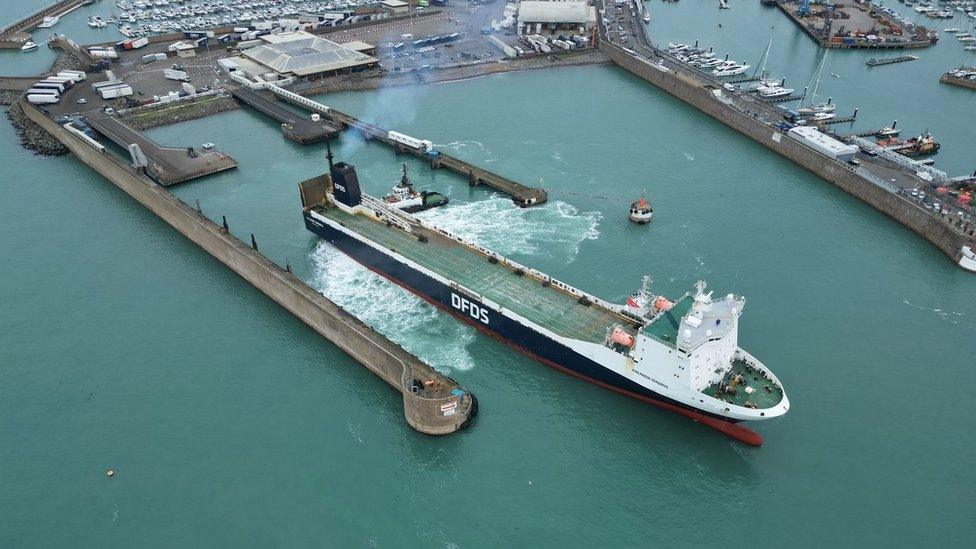Stena Line pulls out of Channel Island ferry bid
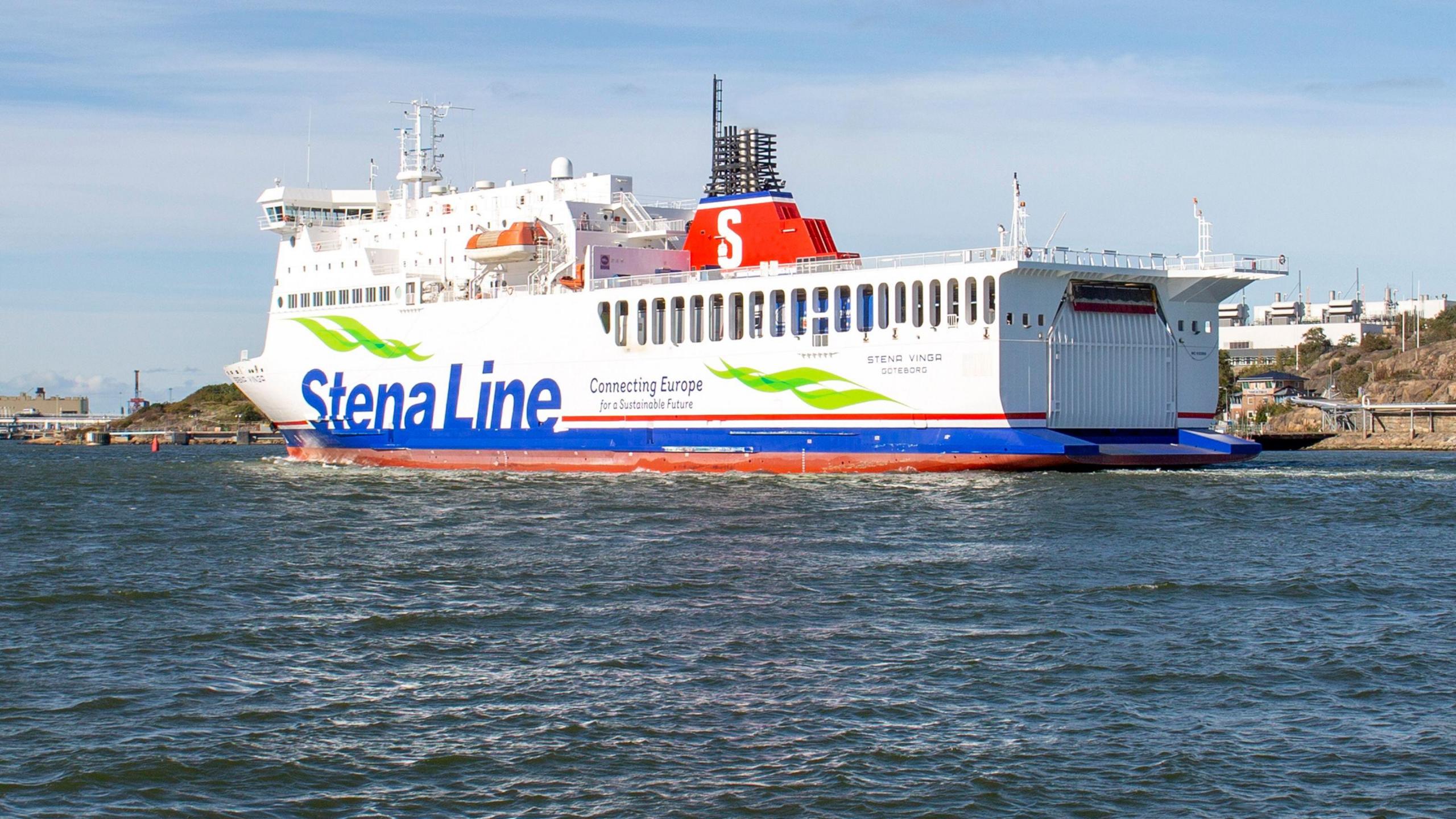
The Stena Line Vinga is the sister vessel of the Condor Islander
- Published
A Swedish ferry company has pulled out of the race to run services in the Channel Islands.
Stena Line, which operates across northern Europe, had started working on a bid for the route but said it had decided to focus on a new route in north Africa.
The States of Guernsey and Government of Jersey launched a process last month to find the operator for the next 15 years.
Danish firm DFDS and the current operator Condor Ferries have announced they will be bidding for the route.
Company priorities
Both Channel Island governments have refused to confirm the number of companies that had expressed an interest in running the route.
It was expected the contract would last for 15 years and the preferred bidder would be selected in September.
Stena CEO Niclas Mårtensson said the decision was made to step away from the process because it did not suit the company's "priorities".
"We have so many projects and we need to prioritise, and when we looked at our business model the majority of what we do is freight.
"From a seasonality perspective and a frequency perspective, we thought: 'Maybe there is someone doing it better?'"
In the last few months, Stena Line has signed an agreement to support the running of ferry services between Africa and Europe across the Gibraltar Straits.
"It was closer to our business model. It supports the rest of the business we're doing better," Mr Mårtensson said.
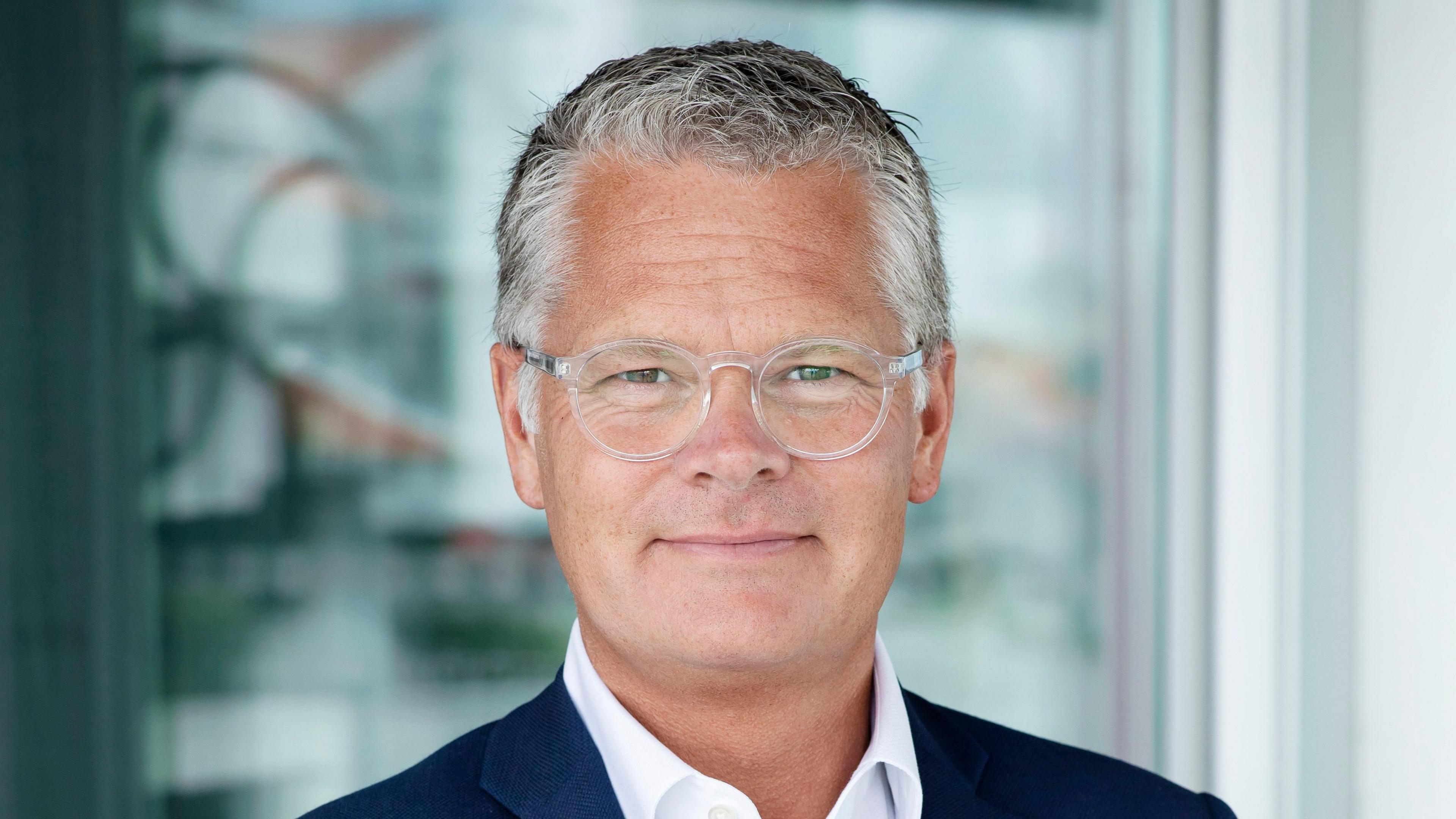
Niclas Mårtensson said the key focus for any company running the routes to the Channel Islands will be reliability and frequency
Earlier this year, when the governments of both Jersey and Guernsey announced they would be opening a tender process for the routes to the islands, Stena Line did express an interest in the contract.
"When the bidding part was opened up, we were curious as we didn't know a lot."
Mr Mårtensson said ships such as the Stena Line Vinga, which is the sister of the Condor Islander, would be very well suited to running services in the Channel Islands.
But he admitted that, much like other ports across Europe, the islands were not ready for electric ferries to start operating locally.
Ferry bid timeline
In June, companies will be meeting with the States of Guernsey and the Government of Jersey to discuss their bids
The governments have specified there would need to be at least 12 rotations for the passengers and freight services during the peak season and seven during the off-peak season on the northern route to the UK
Operators which bid are also required to submit a plan for the future of their fleet
Companies will be informed whether they had made the shortlist on 22 July, while 30 September has been identified as the date the final contract award would be confirmed
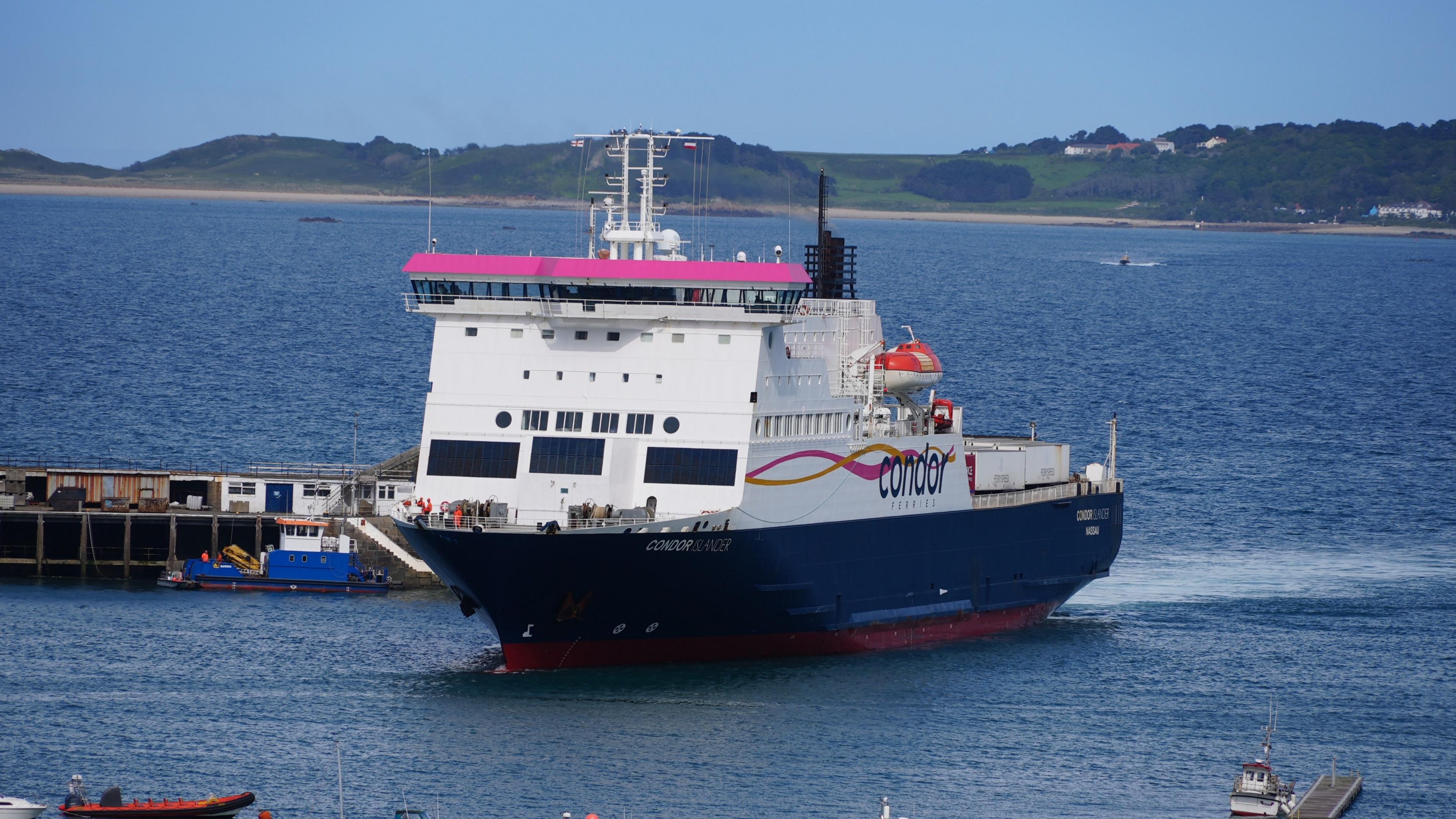
Condor is bidding for the contract, alongside Danish firm DFDS
'Process favours Condor'
Maritime business expert Alf Baird said he was not surprised by Stena Line's decision to withdraw from the process as he did not believe it fitted the company's business model.
After studying the tender document from the governments of the Channel Islands, he said: "The timeline on offer appears to favour the incumbent, Condor.
"It has the existing fleet, existing knowledge and everything in play really.
"This is the problem with public sector concessions: it quite often favours the existing operator rather than new ones, which may have to go into the marketplace and order new vessels."
He suggested moving to the way Norwegian tenders were offered, and using a three-year run-in time, to introduce a "more competitive cost structure".
Follow BBC Guernsey on X (formerly Twitter), external and Facebook, external. Send your story ideas to channel.islands@bbc.co.uk, external.
Related topics
- Published15 May 2024
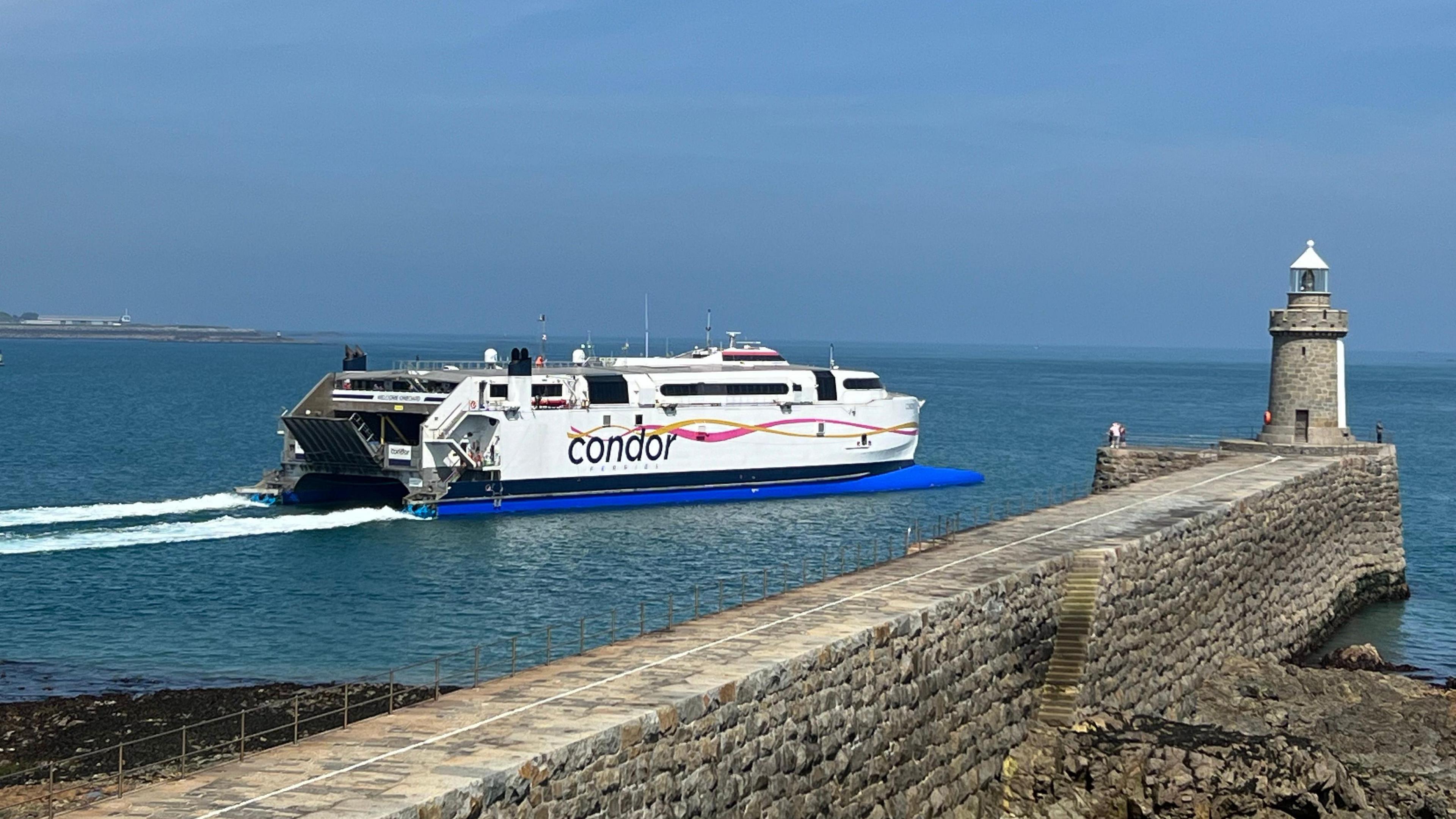
- Published25 April 2024
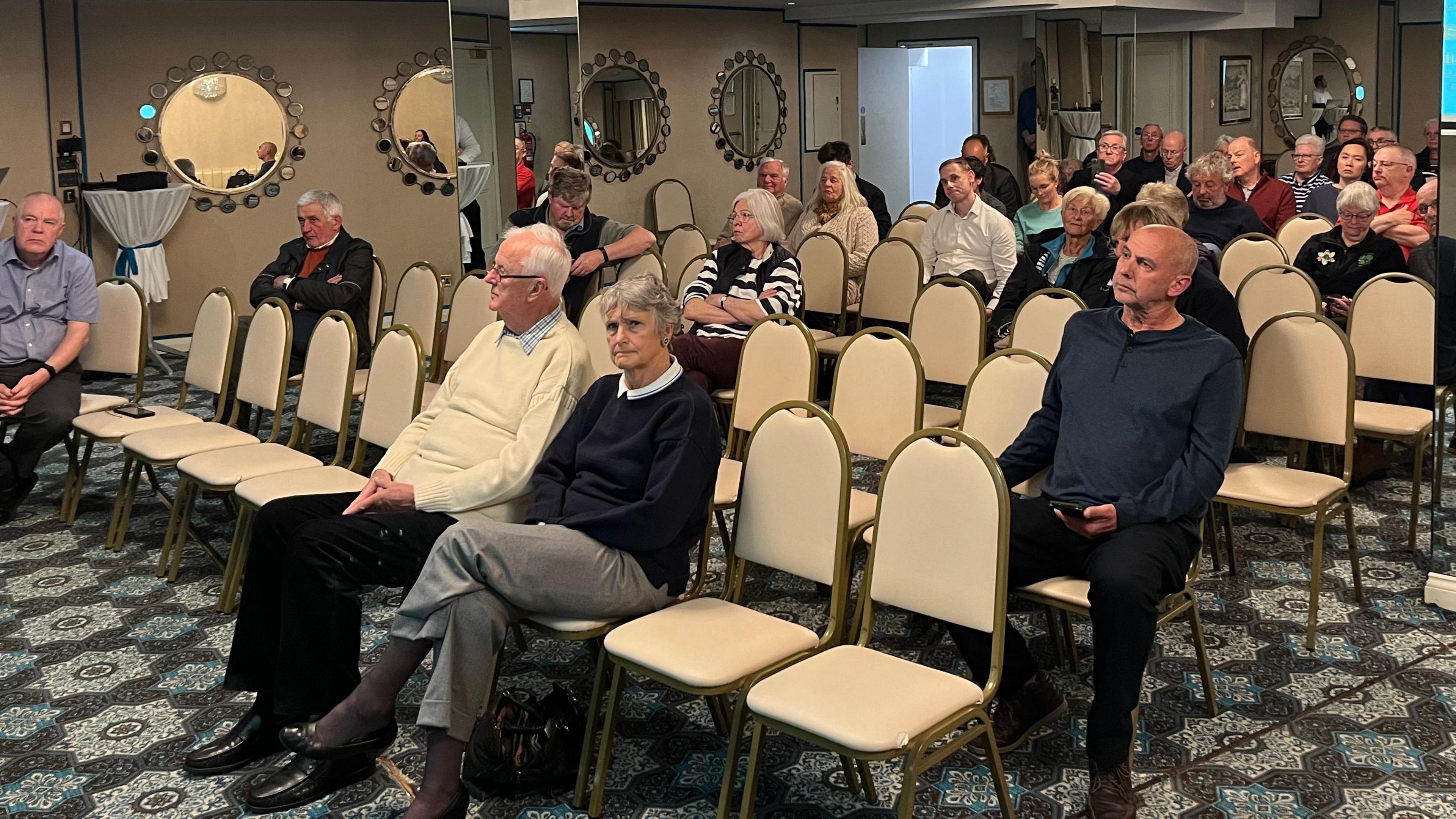
- Published16 January 2024
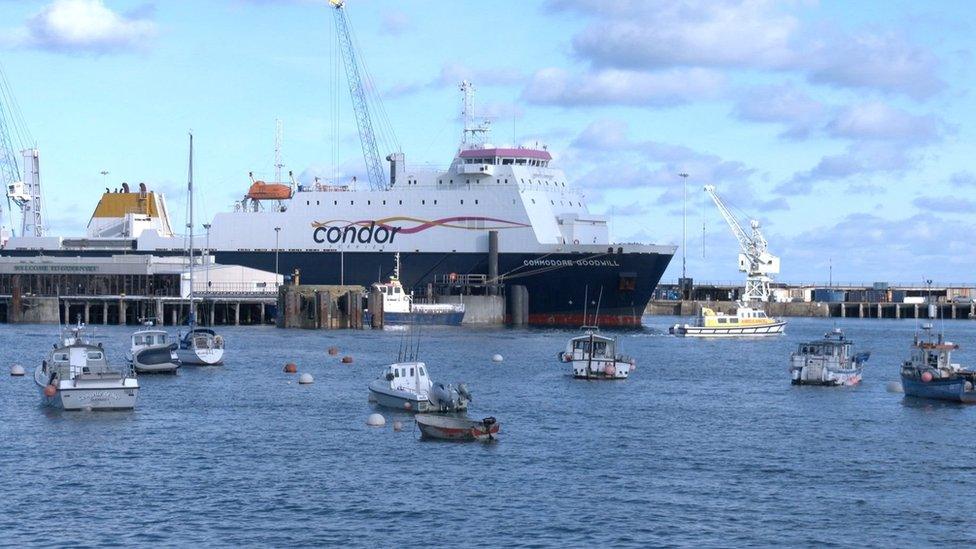
- Published16 December 2023
